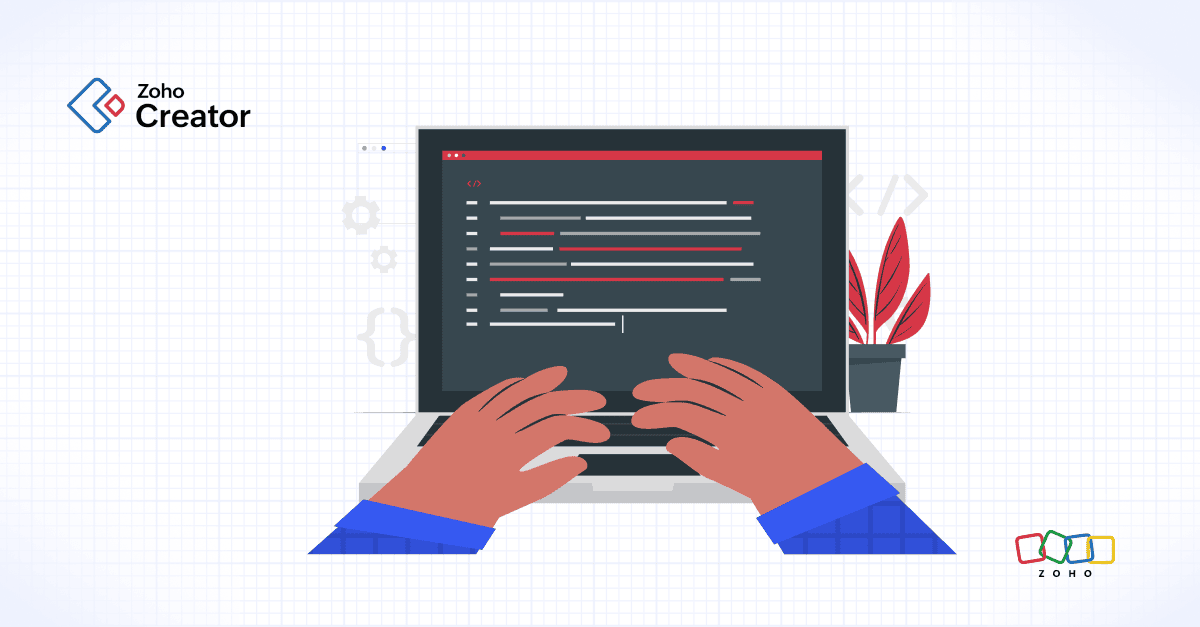- HOME
- Know Your Tech
- 5 real estate apps you can build on low-code in 30 days
5 real estate apps you can build on low-code in 30 days
- Last Updated : April 20, 2023
- 1.8K Views
- 6 Min Read
The real estate industry is one of the most profitable sectors on a global scale. In recent times, residential property demand has increased as a result of increased urbanization and many other factors. Despite the rapid pace of change, the real estate industry continues to face numerous challenges, ranging from innovation to misleading market estimations, job site risks, digitization, and automation.
The calm before the storm
It should be noted that, generally, real estate investments have created consistent cash flow and returns that are significantly higher than traditional sources, with only slightly more risk in recent years. However, since 2020, this reality has shifted, and real estate players have been hit hard across the value chain as a result. As the effects of the outbreak have been felt around the world, real estate companies were impacted in various ways, which vary greatly depending on the region.
So is there a silver lining?
As with many industries, technology is revolutionizing real estate. With everything available online and ubiquitous smartphone usage, you can now easily find real estate services for things like managing and maintaining your property, tracking your agent/s, and more, at your fingertips.
Low-code: The real deal
Maintaining and upgrading traditional real estate management systems is difficult. For decades, the real estate industry relied on manual methods, such as data entry into spreadsheets. But these outdated methods are fraught with hidden errors that waste time, money, and effort.
Technology can help real estate experts in making informed decisions, becoming more productive, and reducing operational costs. It's critical to take advantage of the best technology has to offer in order to keep up with the ever-changing landscape of commercial real estate.
But can real estate businesses afford this technology?
Enter low-code.
Low-code application platforms (LCAPs) are becoming increasingly popular, because they make software production easier and faster. They empower people with little or no coding knowledge to create customized applications much faster than traditional methods. These platforms combine drag-and-drop graphical interfaces with templates to make it simpler for even non-IT workers to design and build applications. And perhaps the best part of working with LCAPs is the flexibility, as users can make changes and add features in real time, whenever there's a need.
Can low-code really be a deal breaker for the real estate industry?
Absolutely!
Whether you're a real estate business owner, a realtor selling properties, or a property manager with multiple units, low-code platforms can help you automate manual processes—like leasing, rental, and maintenance—organize massive amounts of data on real-time reports and dashboards, facilitate real-time communication between different stakeholders, and offer tenants a higher level of customer service.
Not just that, with a low-code platform, you can create any real estate app from the ground up, from property administration to payment tools. You can also easily convert it to a mobile app for easy access, without having to start from scratch or hire a developer.
Top 5 real estate apps to build on low-code
Here are the top 5 real estate apps you can build using low-code:
1. Property management
You're expected to stay on top of many activities as a real estate manager, including property promotion, leasing, documenting accurate tenant information, and adhering to national, state, and local laws. And it can be difficult to manage your real estate business without the help of proper tools. You need comprehensive real estate management software that can help you streamline workflows and centralize data, eliminating task duplication and the confusion of day-to-day operations.
Build your own property management software to:
Attract more buyers, list your properties on a network of real estate markets, and showcase them on your website.
Generate rent roll reports, set up reminders to let tenants know when their rent is due, and automatically email invoices when they're paid.
Organize tenant information, such as contact details, unit number, complaint status, rent status, and lease agreements, all in one place and accessible at any time.
Provide online portals where tenants can pay rent, raise requests/complaints, and manage unit maintenance.
Get a comprehensive overview of critical information using real-time dashboards.
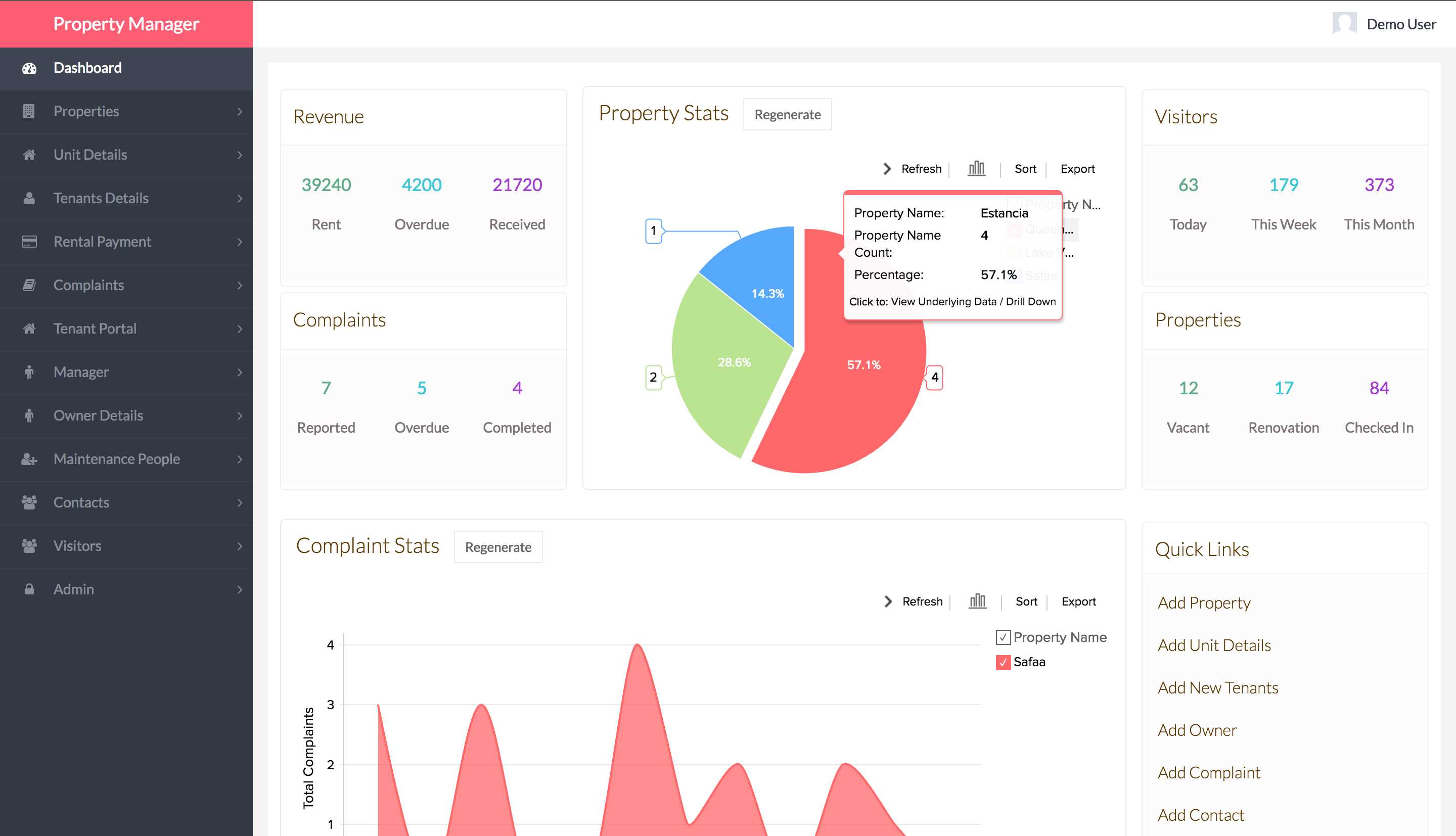
2. Real estate management
Property managers have been managing pertinent data since forever. However, as new technologies become more widely available, real estate management capabilities have advanced. Renting a property involves a significant amount of personal information, which means tenants have a lot riding on property management data security. Real estate management software is now being used to connect property managers and tenants in unprecedented ways—and with cloud-based management tools, your real estate data is securely stored offsite.
Build your own comprehensive real estate management app to:
Upload property details, including images, and ensure they reach the target audience.
Increase your visibility among prospective buyers and tenants by inviting friends to list their properties on your app.
Use extensive filters to simplify property searches.
Receive immediate email notifications with contact information when a potential buyer or tenant clicks on a property and requests a call.
Use a single application to engage owners, buyers, and prospective tenants.
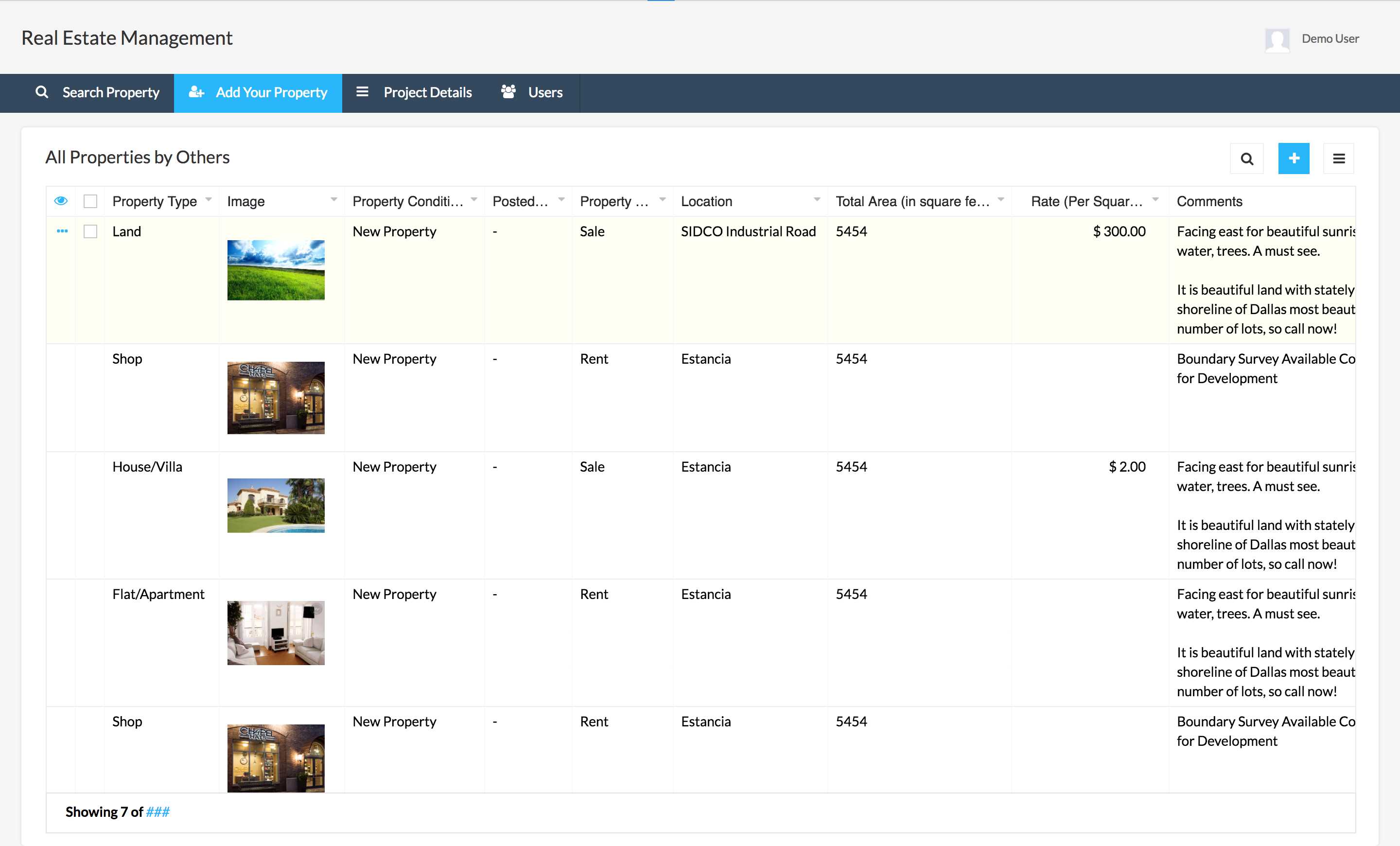
3. Construction management
Being in the construction industry and dealing with all of the operational issues that come with a construction project is a daunting task. To organize, plan, execute, and estimate construction projects, the majority of construction companies or contractors use construction management software.
Construction management software encourages a systematic approach to project management—and construction companies cannot function without effective project management. It also aids in the digitization of the construction industry, which necessitates documentation at every stage, from project initiation to project completion.
Build your own construction management app to:
Maintain all important documents in one app, rather than having them scattered across multiple employees' hard drives.
Raise RFIs—and email responses and overdue reminder emails are sent to all parties involved—all with a few clicks.
Assign tasks, priority levels, and deadlines, and automatically notify employees of upcoming or pending tasks.
Track the progress of punch list items based on their status, and resolve them as soon as possible.
Record purchase orders, upload invoices, and keep an eye on the bottom line with a unified platform.
Keep track of all your projects using intuitive dashboards.
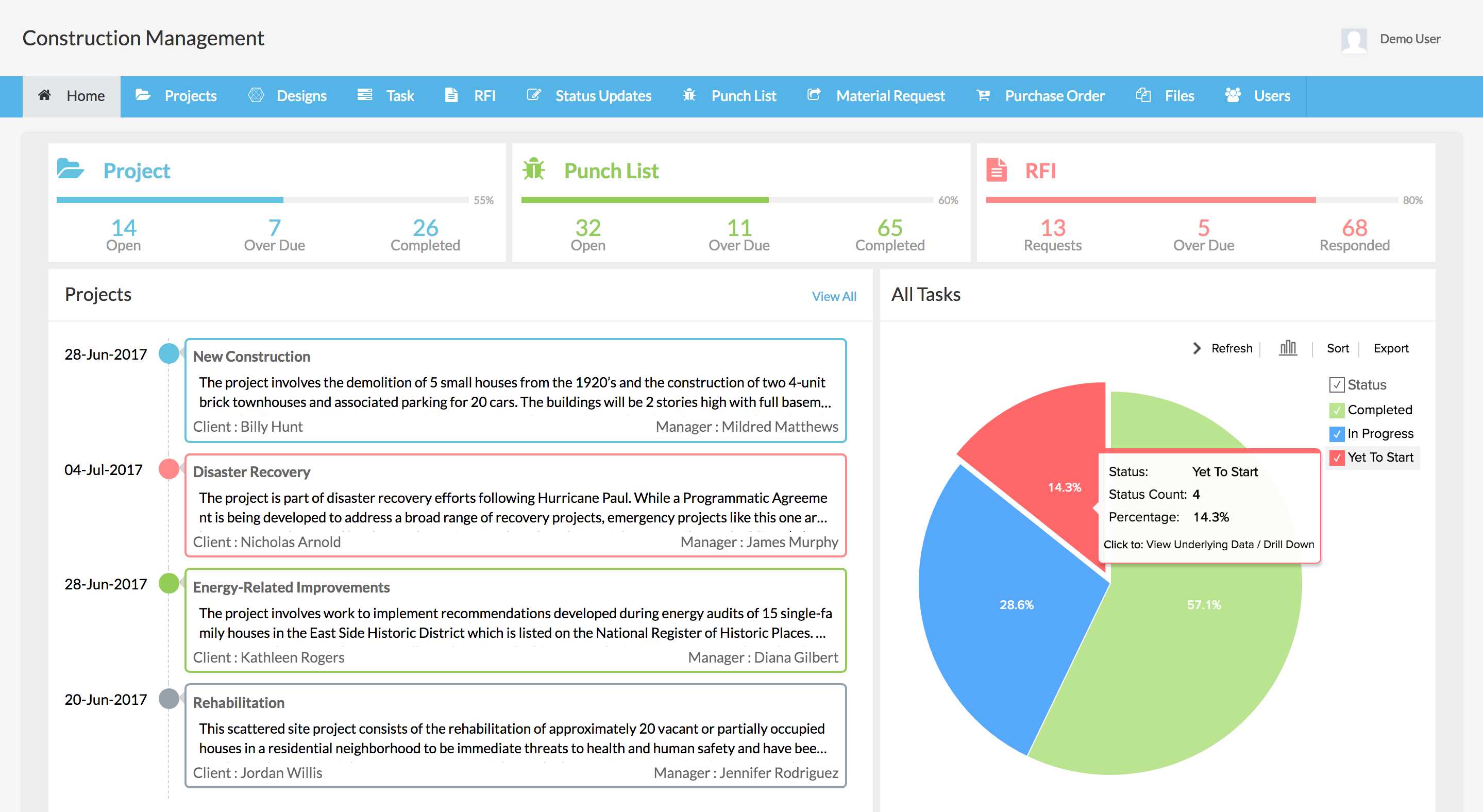
4. Facility management
Facility management ensures that properties or buildings are in good condition by doing routine and periodic maintenance. A well-kept facility provides a safe working environment, lowers energy costs, and ensures that all business processes run smoothly. Preventative maintenance can also aid facility management in preventing equipment problems, as it can be expensive and slow to repair your key systems when they fail.
Build your own facilities management app to:
Check the status of equipment and staff, follow maintenance work, view repair orders and expenses, and more, using comprehensive dashboards.
Monitor stock levels and establish thresholds for the app to produce and send purchase orders to the appropriate vendors.
Get work orders generated automatically, as soon as a request is made.
Schedule routine maintenance, collect real-time data, and keep track of maintenance history to prevent issues.
Set permissions based on roles, and granularly control access.
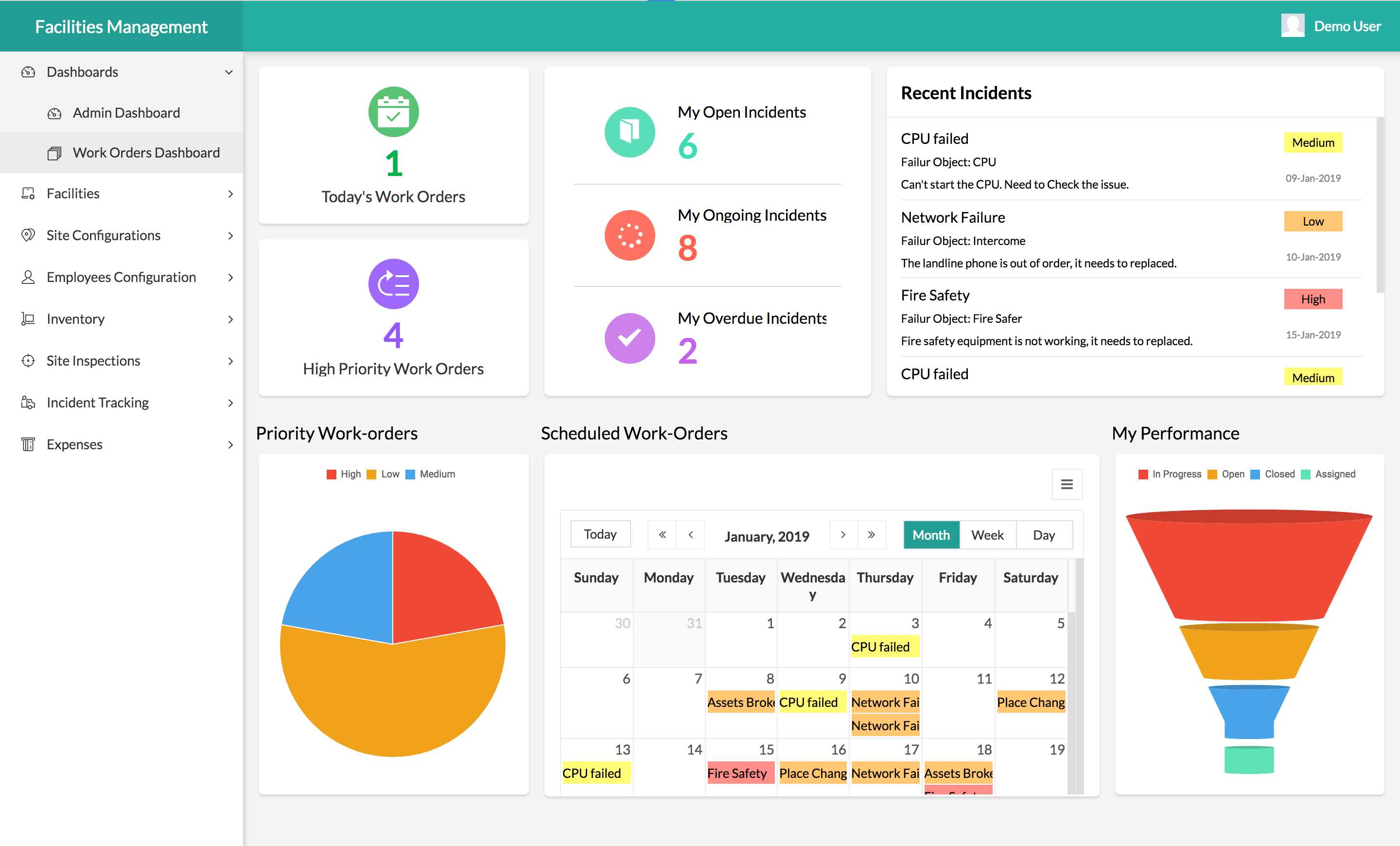
5. Agent tracking
The real estate industry is one of many that employs a large number of agents, brokers, sales reps, property managers, and brokerage professionals who spend the majority of their time in the field. Keeping track of them in real time, while maintaining constant communication, is difficult for managers and administrators. With low-code platforms, realtors can easily build an agent tracking app that's automatically available on mobile, enabling their agents to work on the go.
Build your own agent track app to:
Monitor the status of your agents in real time, both online and offline.
Map out the locations that agents need to visit.
Assign daily tasks.
Communicate with them via the app, regardless of where they are.
Redefining technology in the real estate industry
In recent years, emerging technologies and COVID-19 have changed the way the real estate business operates. Low-interest mortgage rates, flexible payment plans, simple investment opportunities, and the use of technology all contributed to this expansion.
This, in turn, indicates that the real estate business is poised for rapid transformation as a result of the development of new digital resources. All facets of the real estate transaction process will continue to change as real estate smartphone apps evolve. As investors look for ways to automate deal purchases, property management, and communications, these apps are projected to gain in popularity.
Want to create a real estate app from the ground up? Don't worry; we've got you covered.
With over 13,000 customers across the world, Zoho Creator helps businesses create comprehensive apps from the ground up—with little to no coding. Or you can install one of our prebuilt solutions and customize it to meet your needs. All you have to do is sign up and you're set!
 Aishwarya
AishwaryaAishwarya is a content marketer at Zoho. Apart from creating content, she loves to read and watch sci-fi and crime thrillers, travel, and basically can't survive without coffee.

